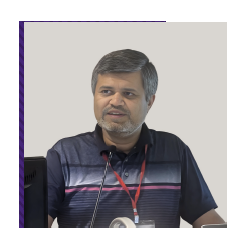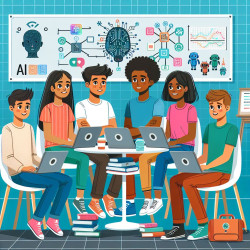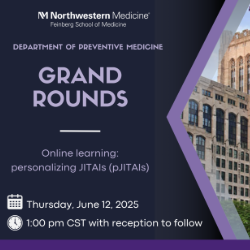Events
Past Event
Statistics and Data Science Seminar: "LLM-Enhanced, Theme-Focused Science Discovery: A Retrieval and Structuring Approach"
Department of Statistics and Data Science
11:00 AM
Details
LLM-Enhanced, Theme-Focused Science Discovery: A Retrieval and Structuring Approach
Jiawei Han, Michael Aiken Chair Professor, Siebel School of Computing and Data Science, University of Illinois Urbana-Champaign
ABSTRACT: Large Language Models (LLMs) may bring unprecedent power in scientific discovery. However, current LLMs may still encounter major challenges for effective scientific exploration due to their lack of in-depth, theme-focused data and knowledge. Retrieval augmented generation (RAG) has recently become an interesting approach for augmenting LLMs with grounded, theme-specific datasets. We discuss the challenges of RAG and propose a retrieval and structuring (RAS) approach, which enhances RAG by improving retrieval quality and mining structures (e.g., extracting entities and relations and building knowledge graphs) to ensure its effective integration of theme-specific data with LLM. We show the promise of this approach at augmenting LLMs and discuss its potential power for LLM-enabled science exploration.
Short bio: Jiawei Han is Michael Aiken Chair Professor in the Siebel School of Computing and Data Science, University of Illinois Urbana-Champaign. He received ACM SIGKDD Innovation Award (2004), IEEE Computer Society Technical Achievement Award (2005), IEEE Computer Society W. Wallace McDowell Award (2009), Japan's Funai Achievement Award (2018), and being elevated to Fellow of Royal Society of Canada (2022). He is Fellow of ACM and Fellow of IEEE and served as the Director of Information Network Academic Research Center (INARC) (2009-2016) supported by the Network Science-Collaborative Technology Alliance (NS-CTA) program of U.S. Army Research Lab and co-Director of KnowEnG, a Center of Excellence in Big Data Computing (2014-2019), funded by NIH Big Data to Knowledge (BD2K) Initiative. Currently, he is serving on the executive committees of two NSF funded research centers: MMLI (Molecular Maker Research Institute)—one of NSF funded national AI centers since 2020 and I-Guide—The National Science Foundation (NSF) Institute for Geospatial Understanding through an Integrative Discovery Environment (I-GUIDE) since 2021.
Time
Friday, May 30, 2025 at 11:00 AM - 12:00 PM
Contact
Calendar
Department of Statistics and Data Science
Modeling and Theory in Population Biology
NSF-Simons National Institute for Theory and Mathematics in Biology
9:00 AM
//
Suite 3500
Details
Population biology phenomena such as the spread of alleles in populations, the coexistence of competing species in an ecological community, the branching patterns in phylogenetic trees, and the dynamics of infectious disease are situated in different biology subdisciplines, e.g. demography, ecology, epidemiology, or evolution. However, these disparate phenomena are modeled using shared mathematical approaches. These approaches draw from diverse areas of mathematics, including stochastic processes, mathematical statistics, combinatorics, and dynamical systems. Across biological disciplines, population biologists share interests in the identification and analysis of equilibria, investigation of mechanistic dynamics, network-based methods and spatial modeling, modeling of stage transitions, biological optimality arguments, and the precise mathematical formulation and exploration of the consequences of verbal models. Some mathematical approaches are unique to population biology phenomena, e.g. the exponential amplification of initially rare beneficial variants such that the law of large numbers never applies poses a profound challenge, one which continues to call for new math in the area of stochastic processes.
This workshop aims to crystallize central ideas common across mathematical modeling and theory in population biology; to disseminate mathematical innovations from one biological subdiscipline to another; to promote mathematical studies at intersections among biological subdisciplines, and to deepen interactions among scientists working on similar problems but separated by disciplinary structures within biology, or between biology and the mathematical sciences. The goals are to build a community of theoretical population biologists that spans biological subdisciplines, invite new entrants to the field, encourage early-career scientists, showcase outstanding research, demonstrate impact in societally relevant problems, and uncover promising new directions where modeling and theory can make a difference in studying new types of biological data obtained at the level of populations.
Time
Monday, June 2, 2025 at 9:00 AM - 5:00 PM
Location
Suite 3500
Contact
Calendar
NSF-Simons National Institute for Theory and Mathematics in Biology
Urban & Community Workshop: Evie Lopoo (Northwestern) & Sophia Costa (University of Chicago)
Sociology Department
4:00 PM
//
222, Parkes Hall
Details
The Department of Sociology's Urban & Community Workshop presents:
Evie Lopoo (NU): Understanding Creative Labor in the Indie MusicScene: Competition and Community in the Age of AI
Sophia Costa (U Chicago): Responding to Poverty Ungovernance During the COVID-19 Pandemic
(A. Fahlberg, C. Martins, A. C. Araujo, L. Santos & J. L. da Silva)
Parkes Hall, Room 222 | Zoom
4:00 PM to 5:30 PM
Time
Monday, June 2, 2025 at 4:00 PM - 5:30 PM
Location
222, Parkes Hall Map
Contact
Calendar
Sociology Department
Modeling and Theory in Population Biology
NSF-Simons National Institute for Theory and Mathematics in Biology
9:00 AM
//
Suite 3500
Details
Population biology phenomena such as the spread of alleles in populations, the coexistence of competing species in an ecological community, the branching patterns in phylogenetic trees, and the dynamics of infectious disease are situated in different biology subdisciplines, e.g. demography, ecology, epidemiology, or evolution. However, these disparate phenomena are modeled using shared mathematical approaches. These approaches draw from diverse areas of mathematics, including stochastic processes, mathematical statistics, combinatorics, and dynamical systems. Across biological disciplines, population biologists share interests in the identification and analysis of equilibria, investigation of mechanistic dynamics, network-based methods and spatial modeling, modeling of stage transitions, biological optimality arguments, and the precise mathematical formulation and exploration of the consequences of verbal models. Some mathematical approaches are unique to population biology phenomena, e.g. the exponential amplification of initially rare beneficial variants such that the law of large numbers never applies poses a profound challenge, one which continues to call for new math in the area of stochastic processes.
This workshop aims to crystallize central ideas common across mathematical modeling and theory in population biology; to disseminate mathematical innovations from one biological subdiscipline to another; to promote mathematical studies at intersections among biological subdisciplines, and to deepen interactions among scientists working on similar problems but separated by disciplinary structures within biology, or between biology and the mathematical sciences. The goals are to build a community of theoretical population biologists that spans biological subdisciplines, invite new entrants to the field, encourage early-career scientists, showcase outstanding research, demonstrate impact in societally relevant problems, and uncover promising new directions where modeling and theory can make a difference in studying new types of biological data obtained at the level of populations.
Time
Tuesday, June 3, 2025 at 9:00 AM - 5:00 PM
Location
Suite 3500
Contact
Calendar
NSF-Simons National Institute for Theory and Mathematics in Biology
Modeling and Theory in Population Biology
NSF-Simons National Institute for Theory and Mathematics in Biology
9:00 AM
//
Suite 3500
Details
Population biology phenomena such as the spread of alleles in populations, the coexistence of competing species in an ecological community, the branching patterns in phylogenetic trees, and the dynamics of infectious disease are situated in different biology subdisciplines, e.g. demography, ecology, epidemiology, or evolution. However, these disparate phenomena are modeled using shared mathematical approaches. These approaches draw from diverse areas of mathematics, including stochastic processes, mathematical statistics, combinatorics, and dynamical systems. Across biological disciplines, population biologists share interests in the identification and analysis of equilibria, investigation of mechanistic dynamics, network-based methods and spatial modeling, modeling of stage transitions, biological optimality arguments, and the precise mathematical formulation and exploration of the consequences of verbal models. Some mathematical approaches are unique to population biology phenomena, e.g. the exponential amplification of initially rare beneficial variants such that the law of large numbers never applies poses a profound challenge, one which continues to call for new math in the area of stochastic processes.
This workshop aims to crystallize central ideas common across mathematical modeling and theory in population biology; to disseminate mathematical innovations from one biological subdiscipline to another; to promote mathematical studies at intersections among biological subdisciplines, and to deepen interactions among scientists working on similar problems but separated by disciplinary structures within biology, or between biology and the mathematical sciences. The goals are to build a community of theoretical population biologists that spans biological subdisciplines, invite new entrants to the field, encourage early-career scientists, showcase outstanding research, demonstrate impact in societally relevant problems, and uncover promising new directions where modeling and theory can make a difference in studying new types of biological data obtained at the level of populations.
Time
Wednesday, June 4, 2025 at 9:00 AM - 5:00 PM
Location
Suite 3500
Contact
Calendar
NSF-Simons National Institute for Theory and Mathematics in Biology
The Reasoning Revolution: Unlocking the Power of LLMs and Neuro-Symbolic AI
AI@NU
12:00 PM
Details

The AI Graduate Group welcomes Asim Munawar, senior research scientist at IBM Research, for an AI industry talk.
Time
Wednesday, June 4, 2025 at 12:00 PM - 1:00 PM
Calendar
AI@NU
Modeling and Theory in Population Biology
NSF-Simons National Institute for Theory and Mathematics in Biology
9:00 AM
//
Suite 3500
Details
Population biology phenomena such as the spread of alleles in populations, the coexistence of competing species in an ecological community, the branching patterns in phylogenetic trees, and the dynamics of infectious disease are situated in different biology subdisciplines, e.g. demography, ecology, epidemiology, or evolution. However, these disparate phenomena are modeled using shared mathematical approaches. These approaches draw from diverse areas of mathematics, including stochastic processes, mathematical statistics, combinatorics, and dynamical systems. Across biological disciplines, population biologists share interests in the identification and analysis of equilibria, investigation of mechanistic dynamics, network-based methods and spatial modeling, modeling of stage transitions, biological optimality arguments, and the precise mathematical formulation and exploration of the consequences of verbal models. Some mathematical approaches are unique to population biology phenomena, e.g. the exponential amplification of initially rare beneficial variants such that the law of large numbers never applies poses a profound challenge, one which continues to call for new math in the area of stochastic processes.
This workshop aims to crystallize central ideas common across mathematical modeling and theory in population biology; to disseminate mathematical innovations from one biological subdiscipline to another; to promote mathematical studies at intersections among biological subdisciplines, and to deepen interactions among scientists working on similar problems but separated by disciplinary structures within biology, or between biology and the mathematical sciences. The goals are to build a community of theoretical population biologists that spans biological subdisciplines, invite new entrants to the field, encourage early-career scientists, showcase outstanding research, demonstrate impact in societally relevant problems, and uncover promising new directions where modeling and theory can make a difference in studying new types of biological data obtained at the level of populations.
Time
Thursday, June 5, 2025 at 9:00 AM - 5:00 PM
Location
Suite 3500
Contact
Calendar
NSF-Simons National Institute for Theory and Mathematics in Biology
Student Perspectives on Generative AI in Language Learning
Language Resource Center
10:00 AM
Details

The Language Resource Center and Media and Design Studio invite you to the final event of this year’s deep dive into Artificial Intelligence and Language Instruction. Together, we will review the latest student perspectives on the use of generative AI for learning and assignments, as well as opinions about instructors’ use of AI tools for the creation of teaching materials and assessments. We will use this data to brainstorm ideas for future curricular and program designs.
Time
Thursday, June 5, 2025 at 10:00 AM - 11:00 AM
Contact
Calendar
Language Resource Center
Modeling and Theory in Population Biology
NSF-Simons National Institute for Theory and Mathematics in Biology
9:00 AM
//
Suite 3500
Details
Population biology phenomena such as the spread of alleles in populations, the coexistence of competing species in an ecological community, the branching patterns in phylogenetic trees, and the dynamics of infectious disease are situated in different biology subdisciplines, e.g. demography, ecology, epidemiology, or evolution. However, these disparate phenomena are modeled using shared mathematical approaches. These approaches draw from diverse areas of mathematics, including stochastic processes, mathematical statistics, combinatorics, and dynamical systems. Across biological disciplines, population biologists share interests in the identification and analysis of equilibria, investigation of mechanistic dynamics, network-based methods and spatial modeling, modeling of stage transitions, biological optimality arguments, and the precise mathematical formulation and exploration of the consequences of verbal models. Some mathematical approaches are unique to population biology phenomena, e.g. the exponential amplification of initially rare beneficial variants such that the law of large numbers never applies poses a profound challenge, one which continues to call for new math in the area of stochastic processes.
This workshop aims to crystallize central ideas common across mathematical modeling and theory in population biology; to disseminate mathematical innovations from one biological subdiscipline to another; to promote mathematical studies at intersections among biological subdisciplines, and to deepen interactions among scientists working on similar problems but separated by disciplinary structures within biology, or between biology and the mathematical sciences. The goals are to build a community of theoretical population biologists that spans biological subdisciplines, invite new entrants to the field, encourage early-career scientists, showcase outstanding research, demonstrate impact in societally relevant problems, and uncover promising new directions where modeling and theory can make a difference in studying new types of biological data obtained at the level of populations.
Time
Friday, June 6, 2025 at 9:00 AM - 5:00 PM
Location
Suite 3500
Contact
Calendar
NSF-Simons National Institute for Theory and Mathematics in Biology
Department of Preventive Medicine Grand Rounds: Susan Murphy, PhD – Online learning: personalizing JITAIs (pJITAIs)
CBITs
1:00 PM
//
Daniel Hale Williams Auditorium, McGaw Pavilion
Details

Just-in-time adaptive interventions (JITAI) are an intervention design aiming to provide the right type/amount of support, at the right time, by adapting to an individual's changing internal and contextual state. The availability of increasingly powerful mobile and sensing technologies underpins the use of JITAIs to support healthy behaviors such as adherence to medications, increasing physical activity, managing stress and so on. JITAI decision rules input an individual's current internal and contextual state, such as their location, recent adherence and current stress and output behavioral support, such as a tip for how to be active in their current location or recommendations to practice a stress management strategy. Personalizing JITAIs (pJITAIs) deploy an AI algorithm to update and improve the JITAI decision rules as individuals experience the intervention. In this talk we discuss how we are using AI algorithms to personalize JITAIs.
Time
Thursday, June 12, 2025 at 1:00 PM - 2:30 PM
Location
Daniel Hale Williams Auditorium, McGaw Pavilion Map
Contact
Calendar
CBITs
2024-2025 Commencement Ceremony
University Academic Calendar
All Day
Details
2024-2025 Commencement Ceremony
Time
Sunday, June 15, 2025
Contact
Calendar
University Academic Calendar
Northwestern Engineering PhD Hooding and Master's Degree Recognition Ceremony
McCormick School of Engineering and Applied Science
9:00 AM
//
2705 Ashland Ave
Details
McCormick School of Engineering PhD Hooding and Master's Degree Recognition Ceremony. The most up to date information can be found on our graduation webpage.
Time
Monday, June 16, 2025 at 9:00 AM - 11:00 AM
Location
2705 Ashland Ave
Contact
Calendar
McCormick School of Engineering and Applied Science
Northwestern Engineering Undergraduate Convocation
McCormick School of Engineering and Applied Science
2:00 PM
//
2705 Ashland Ave
Details
McCormick School of Engineering Undergraduate Convocation. The most up to date information can be found on our graduation webpage.
Time
Monday, June 16, 2025 at 2:00 PM - 4:00 PM
Location
2705 Ashland Ave
Contact
Calendar
McCormick School of Engineering and Applied Science
